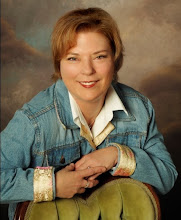Recently, in just one week's time, I came across several articles on sibling relationships, and the effects of bullying of one sibling by another. The first article* I read was sent to me by my brother and recaps a study by the University of New Hampshire. I quote from the University of New Hampshire Media :
The study, among the first to look at sibling aggression across a wide age and geographic range, is unique in its size and scope. Tucker and her co-authors from UNH’s Crimes against Children Research Center – center director and professor of sociology David Finkelhor, professor of sociology Heather Turner, and researcher Anne Shattuck – analyzed data from the center’s National Survey of Children’s Exposure to Violence (NatSCEV), a national sample of 3,599 children, ages one month through 17.
The study showed that aggressive behavior of one sibling towards another is as emotionally damaging as being bullied by a peer--those children who reported physical, verbal or emotional abuse or aggressive behavior such as seizing and/or destroying property of the child, suffered mental distress and experienced bouts of depression, anxiety and anger. Corinna Tucker, study lead author, associate professor of family studies at the University of New Hampshire deemed it significant that sibling and peer bullying were equally harmful to the mental health of children and adolescents.
I am surprised that what seems so evident to me has taken so long to become ‘legitimized’ by a study on the deleterious effects of being bullied by siblings. I say it is about time!
Another article appeared in the Sunday, June 23, 2013 issue of Parade magazine, “The Science of Siblings: Oh, Brother!” and the impact, both positive and negative, that sisters and brothers have on their siblings, from babyhood to adulthood. Doesn’t it make sense that the ones you spend formative years with would be the ones who influence you the most? Is it not a no-brainer that if you treat someone with respect and kindness rather than with abuse, that person has an idea how one should be treated and how one should treat others? As is, an abused child is a traumatized person, and all manners of defensive behavior are necessary just for daily survival if the perpetuator lives in the same house. And that child grows to be an adult burdened by the dysfunctional behavior of being either victim or bully.
Bullies are not weeds that pop up in a rose bed--a bully is nurtured by implicit approval of his parents and peers. I have long advocated for the abused child victimized by a sibling through physical intimidation, assault and mental cruelty. All too often the bullying is dismissed as “part of the childhood experience.” What part of bullying would be beneficial to a child? By the time the person reaches adulthood, he has suffered a variety of pains, the least of which is anxiety, or depression and most likely, anger and physical torment. This kind of baggage really does weigh a person down, stunting creative and emotional health, as well as one’s physical and mental health. And patterns of abuse are repeated throughout relationships, both as a victim and as a bully.
I make a “big deal” out of this because I want to emphasize how important it is for the parents and caregivers to stop aggressive behavior in the cradle, in the home, on the playground and in schools. It is imperative for the well-being of our children, who become the adults that vote, teach, bear offspring and pass on both genetically and learned behaviors. This is a wake-up call for parents, caregivers and educators!
*(the link: http://www.foxnews.com/health/2013/06/17/sibling-bullying-is-under-recognized-study-finds/#ixzz2XAfGwHhw)
Subscribe to:
Post Comments (Atom)



No comments:
Post a Comment